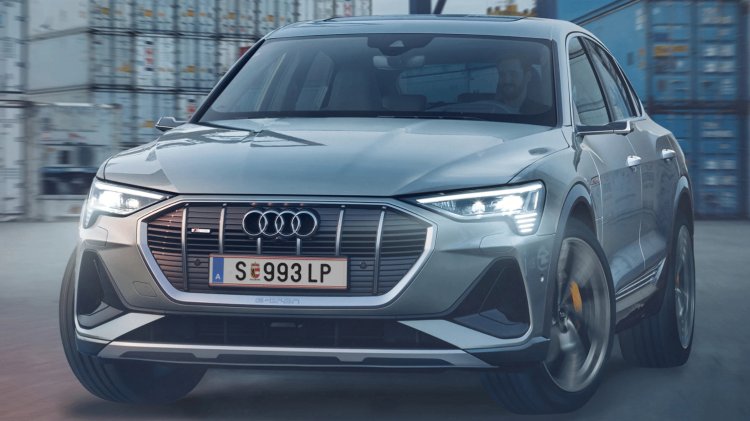Audi brings virtual reality to new cars

Audi, based in Ingolstadt, has announced that starting this summer, new Audi vehicles will be able to experience virtual reality via Holoride.
In 2019, the start-up Holoride demonstrated how virtual reality headsets could be integrated into automobiles. Audi has recently revealed that starting this summer, it would include virtual reality into freshly manufactured automobiles. Users can experience selected material in VR directly in the car by using VR headsets such as the HTC Vive Flow. To begin, the HTC Vive Flow has been officially certified.
Certified VR headsets can access genuine car data with Holoride, thus motion sickness should be avoided as much as possible. The HTC Vive Flow communicates via Bluetooth to the built-in navigation system based on MIB-3 and, among other things, may access acceleration data. A shooter with space gliders was one of the first software products.
For example, if the real Audi turns right, the spaceship will also turn right. With the VR game Marvel Avengers: Rocket's Rescue Run, Audi showcased how VR glasses function for rear-seat passengers in the automobile back in 2019.
Schell Games, Avore Immersive Games, Tripp, Magnopus, Preloaded, Spice VR, Fresh FX, Future House Studios, and Mediasquad, according to the creators, are already working on their own platform for VR content in the automobile. It is currently unknown how much Holoride will cost.
What is definite is that the Audi A4, A5, A6, A7, A8, Q5, Q7, Q8, Audi e-Tron, e-Tron Sportback, and e-Tron GT infotainment systems will be able to play content. Holoride will be accessible to Audi customers in Germany, the United Kingdom, and the United States beginning this summer, with other markets following next year.
German premium car manufacturers are increasingly focusing on luxury
Audi, BMW, and Mercedes-Benz all have one thing in common: they all see themselves as premium automobile manufacturers who aspire to offer more than volume manufacturers such as Volkswagen or Opel.
However, all three southern German premium businesses aspire to expand into the luxury market in the future because these clients are solvent and can spend a lot of money. In an interview with Handelsblatt, Audi CEO Markus Duesmann stated that the tiny models A1 and Q2 will be phased out over the next several years, with no successors planned.
The entire Audi brand will be relaunched, with larger and thus more expensive cars available for purchase. The global COVID-19 pandemic's ramifications, such as a lack of semiconductors, are shown not only in the availability of graphics cards, Playstation 5& Co. but also in the vehicle makers. As a result, rare chips are better placed in pricey models than in entry-level versions.
Mercedes-Benz CEO Ola Källenius has stated that the company sees itself as a luxury car maker rather than "simply" a premium supplier. As a result, the Germans intend to provide only a few compact cars in the coming years, instead of relying on enormous and expensive vehicles.
Instead of seven various model variations on the A-technology Class's base, the range will be limited in the future to better reflect the luxury image. BMW also no longer intends to develop little automobiles, and the i3 electric car, which is roughly the size of an Audi A1, will be phased out in summer 2022.
All three German premium manufacturers seek a large margin or as much profit per vehicle sold as feasible. The trio devised a method for making money using expensive projects, such as e-mobility. Instead of vehicles with individually changeable equipment, numerous packages and additional features will be available for a price in the future.
Luxury features are becoming increasingly significant in general. For example, at the CES 2022 technology trade show, BMW introduced the theater screen, which would soon be accessible in luxury vehicles. This is a 31-inch, 8k, 32:9 screen that slides out of the headliner to entertain backseat passengers. The touchscreen may also be operated with remote control, which is housed in a holder in the doors.
BMW has teamed with Amazon, which is developing a Fire TV Stick with a link to Prime Video and other services in the car, where users will most likely have to pay a monthly subscription to BMW for the data volume in order to see content. Tesla, a competitor, is already incorporating video games into its electric vehicles. Thanks to AMD Ryzen and the RDNA 2 graphics chip, the infotainment system in Model 3 and Co. is powerful enough to play Cyberpunk 2077, for example.




























